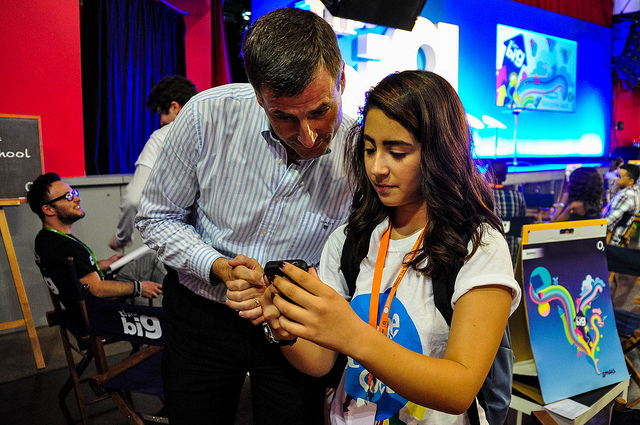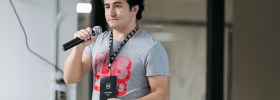By Gary Stewart (@garystew), Director of Wayra UK and Wayra UnLtd; Professor and Entrepreneur in Residence at IE Business School
This article was originally published on the Think Big blog.
23 July 2014: The world doesn’t simply need big ideas. The world needs great vision, powered by creators, engineers, entrepreneurs and change agents with the ability to execute and the ambition to prove its worth in society. It’s about having the courage to be the first one, to lead others into unfamiliar territory, to transform unproven ideas into something real.
It’s about who can outwork, outplay, outsmart the competition and question the usual definitions of success. And in today’s digital world, it all begins with Coding.
One of the reasons that programming is increasingly perceived to be a 21st-century literacy is because is it ultimately empowering, developing the ability to manipulate and better control a career path in today’s digital economy. The UK (both Government and industry) has become much more receptive to and encouraging towards entrepreneurship in this context.
This belief is echoed in a report titled “Digital Skills for Tomorrow’s World“, launched today by the UK Digital Skills Taskforce at Telefónica’s London flagship start-up incubator – Wayra. Written by Maggie Philbin, CEO of Teen Tech and commissioned by Ed Miliband, Leader of the Labour Party, the report looks at issues such as the role of education institutions, government and business in ensuring young people have the skills they need to fulfill their potential and to meet the needs of today and tomorrow’s economy.
Telefónica is a huge advocate of this and is doing all it can to move the digital industry dial with programmes like Wayra and its skills based social initiative – Think Big – which exists to support the movement to get more children programming. Our own CEO in Telefónica UK (O2), Ronan Dunne writes in the foreword to this report:
“At O2, we believe that the possibilities of technology should be open to everyone, and we’re working hard to make this vision a reality. Our Think Big programme is supporting thousands of young people to develop enterprise, creativity, business and digital skills which are enabling them to participate in and shape the emerging digital economy. We’re also building the digital confidence of parents as a young person’s primary educator and support network. And we are working with small businesses and large enterprises to confidently map a truly digital way of operating. “
As a company we are acutely aware that learning how to programme is not the endpoint but part of the journey to becoming an active citizen in today’s online environment but as an industry, particularly if Britain’s economic livelihood is to continue to flourish, we will also need a flexible, adaptable and fully skilled workforce that spans all generations.









